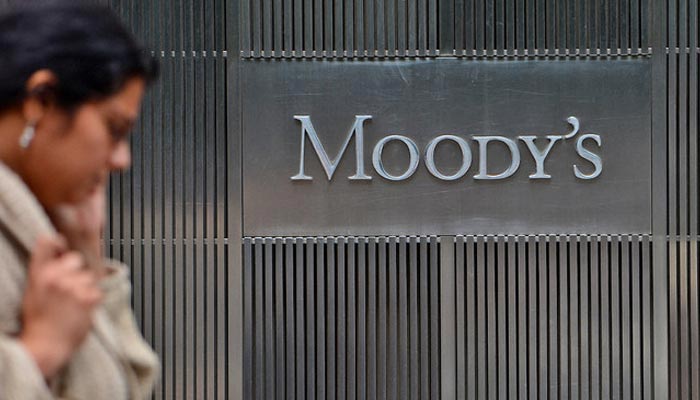Pakistan's chances of securing IMF bailout are dimming: Moody's
Rupee, which is trading near a record low against the dollar, may face further downward pressure, sovereign analyst says
Moody's Investors Service has warned that Pakistan is at an increased risk of failing to restart its $6.7 billion bailout programme with the International Monetary Fund (IMF), putting the country closer to a sovereign default.
Grace Lim, a sovereign analyst with the rating company in Singapore, said: “There are increasing risks that Pakistan may be unable to complete the IMF programme that expires at the end of June."
“Without an IMF programme, Pakistan could default, given its very weak reserves,” Lim said.
Pakistan is making a final effort to revive its IMF programme, with a financing gap of $2 billion and exchange-rate policy among the biggest hurdles. While the government has pledged to meet billions of debt obligations, investors have remained sceptical about the nation's dollar bonds trading in the distressed territory since last year.
Pakistan faces about $23 billion of external debt payments for the fiscal year 2023-24, which begins in July. The amount is roughly five times its reserves and most of it is taken from concessional multilateral and bilateral sources.
On Monday, State Bank of Pakistan (SBP) Governor Jameel Ahmad denied officials were seeking debt restructuring talks as the country will pay $900 million of sovereign debt in June and expects $2.3 billion of obligations to be rolled over.
The country’s $1 billion bond due in April next year was little changed at about 55.6 cents on the dollar in Asian trading on Wednesday, after sliding almost three cents in the previous two days.
Rupee pressure
The rupee, which is trading near a record low against the dollar, may face further downward pressure, Lim said in an emailed response to questions.
The IMF’s comments on the exchange rate likely referred to the gap in the interbank and retail markets, she said.
The local currency has lost more than 20% this year after officials devalued the currency in January, making it one of the worst performers globally.
Pakistan’s financing options beyond June are highly uncertain, even as its external repayments will remain significant over the next few years, Lim said. Continuing engagement with the IMF would support additional financing from other multilateral and bilateral partners, which could reduce default risk, she said.
Separately, Pakistan is looking to purchase spot shipments of liquefied natural gas for the first time in roughly a year after a rapid drop in overseas prices. This suggests that Pakistan may see itself on a better financial footing, as suppliers were hesitant to sell fuel to the nation last year out of fear it may not be able to meet future payments.
-
Bitcoin plummets toward $60,000 as investors dump risky bets
-
Bitcoin crashes below $63K as regulatory pressure and market fears grow
-
Bitwise Crypto Industry innovators ETF: What investors should do in 2026?
-
Nintendo shares slide again as momentum fears grow
-
Gold, silver prices fallen sharply; What’s driving the drop?
-
Gold’s record climb: Experts question if its safety is ‘overstated’
-
Dubai unveils plans to construct street built with real gold
-
Netflix slams Paramount’s bid: 'Doesn't pass sniff test’ as Warner battle escalates












